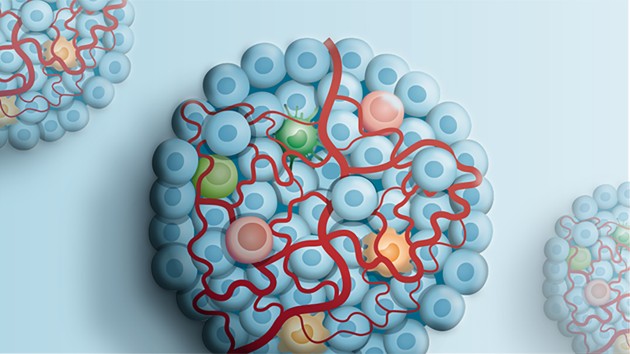Collection |
Collections
-
-
Collection |
 Communications Biology 2 year anniversary collection
Communications Biology 2 year anniversary collection
-
Special |
 Pan-Cancer Analysis of Whole Genomes
Pan-Cancer Analysis of Whole Genomes
Cancer is a disease of the genome, caused by a cell's acquisition of somatic mutations in key cancer genes.
Image: Nik Spencer/Nature -
Collection |
 Spotlight on Early Career Researchers
Spotlight on Early Career Researchers
Communications Biology have published a series of interviews with early career researchers in which they talk about their research and experiences.
-
Collection |
 Cartilage repair and regeneration
Cartilage repair and regeneration
This Collection of articles from several Nature journals covers the latest advances in our understanding of cartilage as a tissue, as well as insights into cartilage repair and potential regeneration strategies.
Image: Springer Nature Limited/YAY Media AS/Alamy -
Collection |
 Rare Cancers Collection
Rare Cancers Collection
This collection from the cancer editorial community at Nature Research journals focuses on highlighting work on rare cancers, from preclinical basic research to translational and clinical research.
Image: Simon Bradbrook/Springer Nature Limited -
Collection |
 Communications Biology first year anniversary collection
Communications Biology first year anniversary collection
Communications Biology published its first articles on January 22, 2018. In this collection, our in-house editors highlight some of their favorite papers from our first year of publishing. This collection also includes all Review and Comment articles published during our first year. To celebrate some of our featured articles, we have also commissioned 'After the Paper' Comment articles from a few of our authors. These will be added to the collection as they are published. Finally, we link to all 'Behind the Paper' posts published by our authors on some of the Nature Research community sites.
-
Collection |
 UK Biobank
UK Biobank
The UK Biobank is a prospective cohort study with deep genetic, physical and health data collected on ~500,000 individuals from 2006-2010 across the United Kingdom. This unprecedented open access genetic database has enabled large scale studies on genetic and epidemiological associations for a broad range of health related traits. The UK Biobank has made their datasets and research results accessible to researchers as an open access resource to benefit public health.
Image: Kelly Krause, Nature

 Stress
Stress